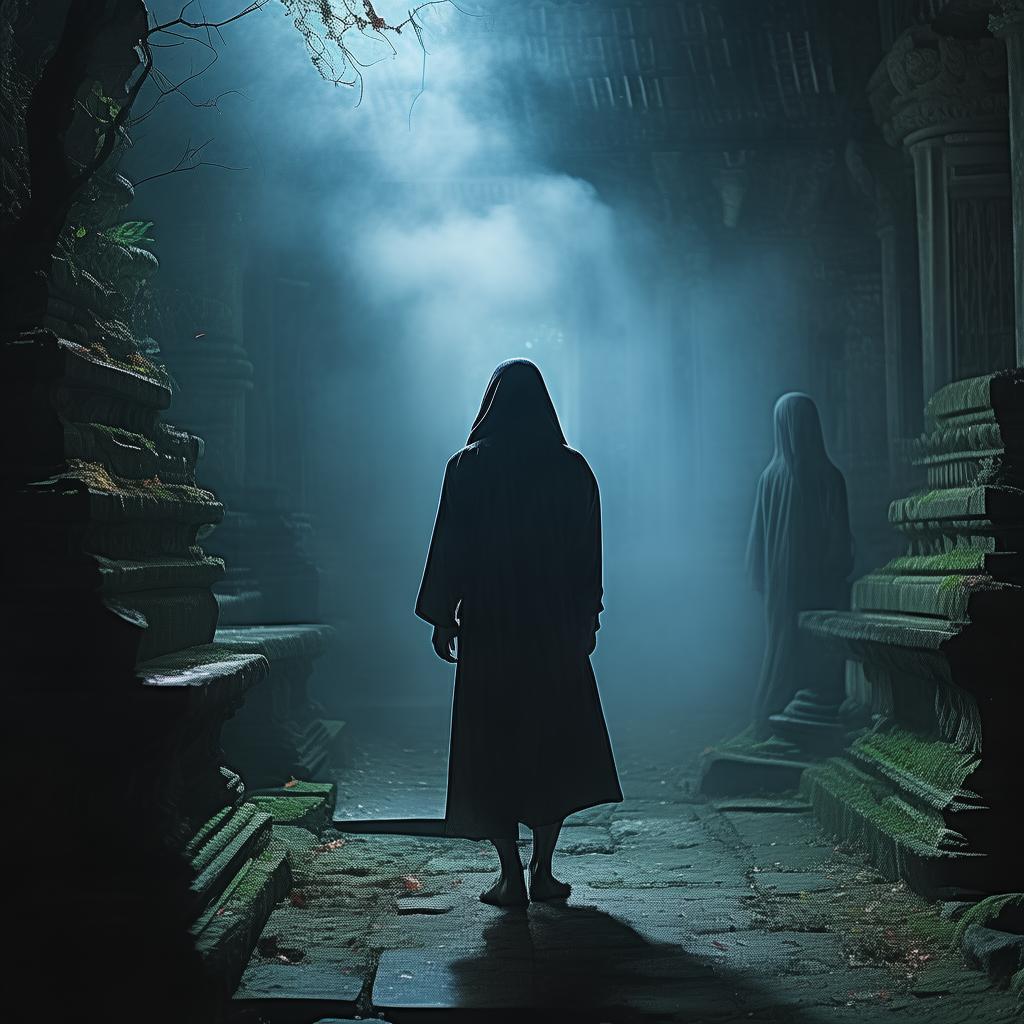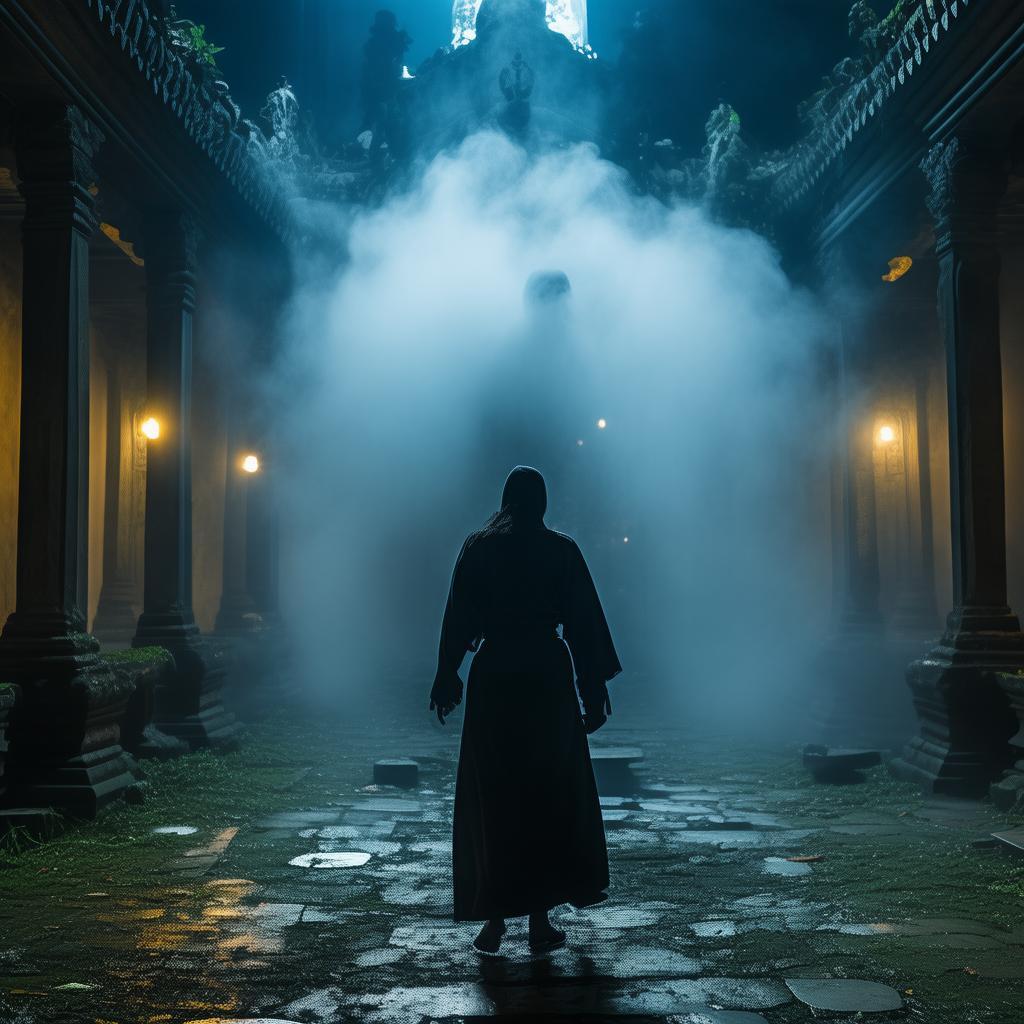Whispers from the Past: The Haunting of Willow Creek
In the heart of the misty hills where the Willow Creek winds through the ancient forest, there stood a dilapidated stable. Its walls were lined with cobwebs and the scent of aged hay clung to the air, but it was the whisper of the wind through the old, broken wooden door that held the key to a haunting tale.
Eli, a seasoned horse whisperer, had settled in this secluded spot after a life of wanderlust. He sought solace among the horses, finding peace in their presence, and in their silent conversations. But one evening, as the moon cast its pale glow over the valley, something extraordinary happened.
The stable door creaked open with a life of its own, and a cool breeze brushed past Eli. He turned to see a horse, a chestnut mare with a flowing mane, standing in the doorway, her eyes brimming with a wisdom that seemed to transcend time. She moved closer, her hooves not making a sound on the sawdust, as if she carried the weight of an unseen burden.
Eli, a man not given to superstitious beliefs, reached out and touched the mare's nose, feeling a strange warmth in his hand. "What brings you here?" he asked, his voice soft, almost reverent.
The mare's eyes met his, and in them, he saw a reflection of pain and longing. With a gentle nod, she turned and led him through the stable, into a dark corner where a tarp-covered pile of hay lay. Eli removed the tarp to reveal a cradle, within which lay the skeleton of a child.
Eli's heart sank. He knelt beside the cradle, his hand trembling as he brushed away the dust. "Who is this?" he whispered, the question hanging heavily in the air.
The mare moved closer, her head resting on Eli's shoulder. It was as if she were seeking comfort. Eli looked into her eyes, searching for an answer, and in that moment, he felt a connection, a bridge between worlds.
"You are not alone," the mare seemed to say, her whisper barely audible above the rustling leaves.
Days turned into weeks, and Eli found himself drawn back to the stable more often than not. The mare had become his companion, her presence a constant reminder of the child in the cradle. He began to hear whispers, faint sounds of laughter and the echo of a child's voice, mingling with the rustle of the leaves.
Eli's inquiries in the local town yielded few answers. The child, they said, had disappeared during the Great Famine, leaving behind only a name and a story of a mother's desperate search. But the whispers grew louder, more insistent, until they became a chorus that echoed in his mind day and night.
One evening, as the sun dipped below the horizon, the mare led Eli deeper into the forest, through a clearing and up a hill to an old, abandoned cabin. Inside, the air was thick with dust and decay, but it was the image on the wall that caught his attention—a portrait of a woman with a young child at her side.
Eli's heart raced. The woman looked familiar, her eyes holding the same pain as the whispers. He approached the portrait, tracing the outline of the child's face with his finger. The mare stood beside him, her eyes never leaving his.
Suddenly, the room was filled with light, and the image on the wall began to shimmer. The woman and the child moved, as if stepping from the canvas into the room. The mare let out a loud neigh, and Eli found himself on the floor, gasping for breath.
When he looked up, the woman and the child were gone, but the mare was still there, her eyes filled with compassion. "They can rest now," she said, her voice a soft murmur.
Eli struggled to his feet, the mare following him. As they stepped out of the cabin, the whispers grew fainter, then vanished altogether. The mare turned to face him, her eyes conveying a sense of peace.
"I understand now," Eli said, his voice filled with emotion. "This child needed to be heard."

The mare nodded, her head dipping in respect. Then, without a sound, she turned and walked back towards the stable. Eli followed, his heart heavy but at the same time lighter. He knew the child's story would be told, and in that, he found a profound sense of purpose.
Eli spent the next few months gathering information, interviewing the townsfolk, and piecing together the story of the child. The whispers had not been just of a lost soul but of a mother's love and a child's hope for a better life.
As he shared the story with the townsfolk, a bond was formed, and the abandoned cabin was transformed into a museum, a testament to the child's memory. Eli continued to whisper to the horses, finding solace in their presence, and in the knowledge that he had helped to heal a broken heart.
The Horse's Whisper had not just given Eli insight into the mysteries of life, but it had also opened his eyes to the unseen world, to the spirits that walk among us and the connections that bind us all. In the end, it was not just the child who had been found, but Eli himself, who had discovered a new purpose and a deeper understanding of life's enduring mysteries.
✨ Original Statement ✨
All articles published on this website (including but not limited to text, images, videos, and other content) are original or authorized for reposting and are protected by relevant laws. Without the explicit written permission of this website, no individual or organization may copy, modify, repost, or use the content for commercial purposes.
If you need to quote or cooperate, please contact this site for authorization. We reserve the right to pursue legal responsibility for any unauthorized use.
Hereby declared.









